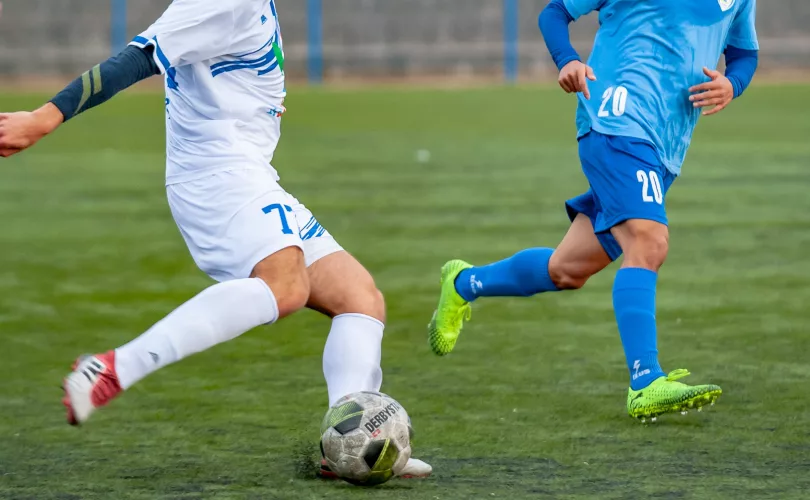Sports and recreational activities are integral to our lives, providing numerous benefits ranging from physical fitness to mental well-being. Behind the scenes of these activities are coaches who guide and inspire participants to achieve their goals, develop skills, and foster a sense of camaraderie. While coaches are primarily known for their expertise in training and strategy, first aid training is another vital skill in their toolkit.
The ability to provide immediate medical assistance in times of crisis can make a significant difference in ensuring the safety and well-being of athletes and participants. Let’s explore why coaches should have first-aid training, even if not all possess extensive medical knowledge.
Prompt Response to Emergencies
By their very nature, sports, and recreational activities carry a certain degree of risk. Injuries such as sprains, fractures, and minor cuts are not uncommon, and often, a sports-themed first aid kit can help at a moment’s notice—whether it’s for a large team, an individual on land, or a sport that takes place on the water.
However, more severe incidents can occur in some instances, including concussions, cardiac events, or sudden collapses.
In these critical moments, the presence of a coach with first aid training can be a lifesaver. Immediate assessment and response is often the key to preventing further harm and facilitating a smoother recovery process. First, assess the situation to figure out what’s going on. Then, respond with a plan of action.
With basic first aid knowledge, coaches can take swift action, stabilize the injured person, and provide essential care until professional medical help arrives.
Ensuring Safety on and off the Field
Coaches are responsible for the safety of their participants not only during training or competition but also outside those contexts. Many sports involve travel, outdoor activities, or exposure to changing weather conditions. A coach with first aid training is better equipped to handle unexpected situations that may arise in these environments.
From heat-related illnesses to allergic reactions, having the ability to assess the situation and administer appropriate first aid measures can prevent complications and create a safer overall experience for everyone involved.
Bridge to Professional Medical Care
While first aid training isn’t meant to replace professional medical care, it can be a crucial bridge until medical professionals can take over. Coaches with first aid knowledge can provide valuable information to paramedics or doctors, offering insights into what transpired before their arrival, the initial steps taken to address the issue, and if the patient has any known medical history, such as asthma, heart disease, etc.
This collaboration between coaches and medical professionals can lead to more accurate diagnoses and appropriate treatment plans, ultimately contributing to a more effective recovery process.
CPR Training
Cardiopulmonary Resuscitation (CPR) is a life-saving technique that restores blood circulation and breathing in a person whose heart has stopped beating. Coaches familiar with CPR and CPR kits can be the crucial link between a dire situation and a second chance at life. From sudden cardiac arrests to near-drowning incidents, the ability to perform CPR can make all the difference until professional medical help arrives.
Boosting Confidence and Reducing Panic
In the face of an injury or medical emergency, panic can spread quickly among the injured individual and those around them. A coach with first aid training remains a calming presence in such situations.
Their ability to assess the situation, provide immediate assistance, and communicate clearly with those involved can significantly reduce panic and anxiety. This calm demeanor reassures the injured person and sets a positive example for others, encouraging a composed response to adversity. Staying calm helps provide more precise thinking and smoother cooperation in care delivery.
Creating a Culture of Preparedness
One of the most significant advantages of coaches possessing first aid training is the culture of preparedness it fosters within the team or group. When athletes see their coaches actively prioritizing safety and health, they are more likely to internalize those values. This can increase participants’ awareness about injury prevention, proper warm-up and cool-down techniques, and promptly reporting discomfort or health issues.
In essence, coaches become role models not only in sportsmanship but also in their commitment to the well-being of their team members.
Meeting Regulatory and Ethical Expectations
Many sports organizations and governing bodies require coaches to have at least basic first-aid training as part of their qualifications. This is not only to ensure the safety of participants but also to fulfill the ethical responsibility coaches have toward their team members.
When individuals sign up for sports or recreational activities, they implicitly trust that the organizers and coaches have taken necessary safety precautions. First aid training is a tangible way to uphold this trust and demonstrate a commitment to the participant’s safety.
Conclusion
The importance of first-aid training for coaches can’t be overstated. The ability to respond promptly and appropriately to emergencies, create a culture of preparedness, bridge the gap to professional medical care, and instill confidence among participants are just a few advantages that first aid training brings to coaches.
As coaches play a vital role in shaping the experiences and development of their team members, their commitment to safety echoes far beyond the field, leaving a lasting and positive impact on the lives of those they influence.




